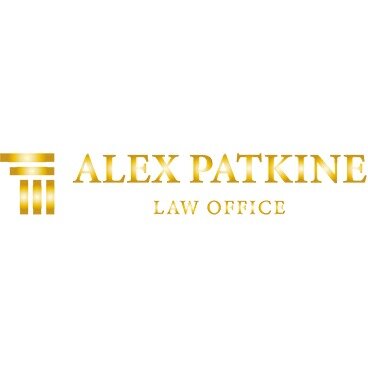Best Energy, Environment & ESG Lawyers in Israel
Share your needs with us, get contacted by law firms.
Free. Takes 2 min.
Or refine your search by selecting a city:
List of the best lawyers in Israel
About Energy, Environment & ESG Law in Israel
Energy, Environment & ESG (Environmental, Social, and Governance) law in Israel is a growing and dynamic field that reflects Israel’s commitment to sustainable development and global best practices. This legal sector governs the regulation and management of energy resources, environmental protection, and the integration of ESG standards into corporate and governmental policies. Israel’s unique geopolitical and environmental landscape, along with its rapid technological development, has led to a robust and evolving legal framework addressing renewable energy, climate change, natural resource management, pollution control, and responsible social and corporate governance.
Why You May Need a Lawyer
Individuals, businesses, and organizations often require legal assistance within the Energy, Environment & ESG sector for a variety of reasons. You may need a lawyer if you are:
- Developing or investing in solar, wind, or other renewable energy projects
- Facing regulatory enforcement or compliance issues involving environmental permits or standards
- Responding to allegations of environmental harm such as air, water, or soil pollution
- Managing waste disposal, recycling, or hazardous material handling
- Participating in greenhouse gas emissions reduction programs or carbon trading
- Seeking to ensure responsible disclosure of ESG metrics in corporate reports
- Pursuing government incentives or subsidies for clean energy or sustainability initiatives
- Involved in mergers, acquisitions, or investments requiring ESG due diligence
Legal professionals can assist by providing guidance on compliance, representing clients in regulatory proceedings, drafting complex agreements, and helping to navigate the often intersecting local, regional, and international standards.
Local Laws Overview
Israel’s Energy, Environment & ESG legal framework includes a mix of national laws, regulations, policies, and international agreements. Key aspects include:
- Energy Regulation: The Electricity Law, the Gas Law, and regulations administered by the Israeli Electricity Authority and Ministry of Energy regulate the production, distribution, and consumption of energy, with a strong push towards renewable energy adoption.
- Environmental Protection: The Ministry of Environmental Protection oversees the implementation of laws such as the Clean Air Law, Water Law, Prevention of Environmental Hazards (Waste and Hazardous Substances) Law, and more. These laws establish standards for pollution control, waste management, and environmental risk mitigation.
- ESG Reporting and Corporate Conduct: While ESG requirements are emerging, companies listed on the Tel Aviv Stock Exchange are increasingly expected to disclose ESG practices and comply with international sustainability standards. Public and financial institutions may also have specific ESG obligations.
- Planning and Building Laws: These laws ensure that new developments consider environmental implications, often requiring detailed impact assessments and permitting processes.
- International Treaties: Israel is a party to several international environmental conventions, which influence national legislation and compliance expectations.
Violations of these laws can result in administrative or criminal penalties, civil liability, reputational damage, and loss of operating licenses.
Frequently Asked Questions
What is ESG and why does it matter in Israel?
ESG stands for Environmental, Social, and Governance. It relates to a set of standards for company operations that investors and regulators use to screen potential investments. ESG is increasingly important in Israel due to global investor expectations, financial regulations, and the push towards corporate responsibility.
Are renewable energy projects encouraged by Israeli law?
Yes, Israel actively promotes renewable energy through incentives, feed-in tariffs, government tenders, and supportive regulations. Solar energy, in particular, has seen significant growth.
Do I need environmental permits for construction or industrial operations?
In most cases, yes. Certain activities, especially those with potential environmental impact, require permits from the Ministry of Environmental Protection before proceeding with construction or operations.
What are the penalties for environmental violations?
Penalties can include fines, orders to stop operations, criminal charges, and requirements to remediate environmental harm. There can also be civil liability for damages caused to individuals or the community.
What reporting obligations do companies have regarding ESG?
Public companies in Israel are increasingly required to disclose ESG practices, both in line with local stock exchange requirements and international standards. Reporting is becoming more common for private companies as well, especially when working with foreign investors or in regulated sectors.
How does climate change law apply in Israel?
Israel is developing specific climate change legislation, with existing laws regulating greenhouse gas emissions, promoting energy efficiency, and supporting national emission reduction targets.
Can individuals or communities challenge environmentally harmful projects?
Yes, individuals and groups can file objections during the planning process, participate in public hearings, and, in some cases, initiate legal proceedings to protect environmental interests.
What government bodies oversee environmental and energy law enforcement?
The Ministry of Environmental Protection, Ministry of Energy, and Israel Electricity Authority are the primary regulators. Local municipalities and planning committees also play roles in enforcement.
Are there incentives for businesses to adopt ESG practices in Israel?
Yes, businesses may benefit from government grants, tax incentives, improved access to capital, and enhanced reputation by adopting ESG practices.
How can a lawyer assist with ESG compliance?
A lawyer can help interpret relevant laws, implement compliance programs, ensure accurate disclosures, manage risk, and represent you in disputes or regulatory proceedings related to ESG matters.
Additional Resources
If you are seeking information or support in the field of Energy, Environment & ESG law in Israel, consider reaching out to the following organizations and agencies:
- Ministry of Environmental Protection
- Ministry of Energy
- Israel Electricity Authority
- Israel Green Building Council
- Society for the Protection of Nature in Israel
- Association of Environmental Justice in Israel
- Israel Securities Authority (for ESG reporting requirements)
- Local municipal environmental divisions
- Professional legal associations with an environmental or energy law focus
Next Steps
If you believe you need legal advice in Energy, Environment & ESG matters, here is how you can proceed:
- Document your situation and gather all relevant permits, plans, correspondence, and notices
- Identify the particular legal area you need help with, such as energy project development, environmental permits, waste management compliance, or ESG reporting
- Contact a lawyer who specializes in Energy, Environment & ESG law in Israel for an initial consultation
- Prepare a list of questions or concerns to discuss with your lawyer
- Stay informed about deadlines, reporting requirements, and possible legal risks affecting your project or business
Engaging with a qualified legal professional will help ensure you understand your rights, responsibilities, and avenues for protection or recourse under Israeli law. Early intervention by a knowledgeable lawyer can prevent costly disputes and ensure compliance with this rapidly evolving legal sector.
Lawzana helps you find the best lawyers and law firms in Israel through a curated and pre-screened list of qualified legal professionals. Our platform offers rankings and detailed profiles of attorneys and law firms, allowing you to compare based on practice areas, including Energy, Environment & ESG, experience, and client feedback.
Each profile includes a description of the firm's areas of practice, client reviews, team members and partners, year of establishment, spoken languages, office locations, contact information, social media presence, and any published articles or resources. Most firms on our platform speak English and are experienced in both local and international legal matters.
Get a quote from top-rated law firms in Israel — quickly, securely, and without unnecessary hassle.
Disclaimer:
The information provided on this page is for general informational purposes only and does not constitute legal advice. While we strive to ensure the accuracy and relevance of the content, legal information may change over time, and interpretations of the law can vary. You should always consult with a qualified legal professional for advice specific to your situation.
We disclaim all liability for actions taken or not taken based on the content of this page. If you believe any information is incorrect or outdated, please contact us, and we will review and update it where appropriate.
Browse energy, environment & esg law firms by service in Israel
Israel Attorneys in related practice areas.
Browse energy, environment & esg law firms by city in Israel
Refine your search by selecting a city.

















